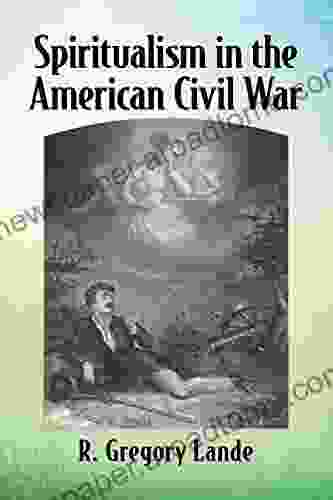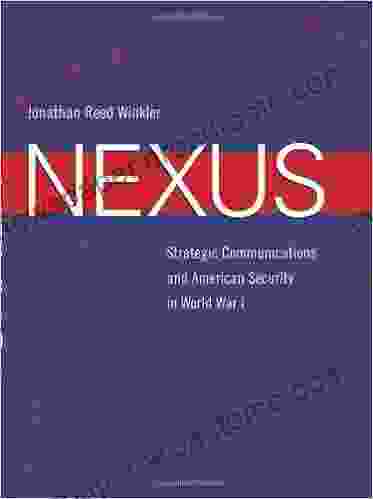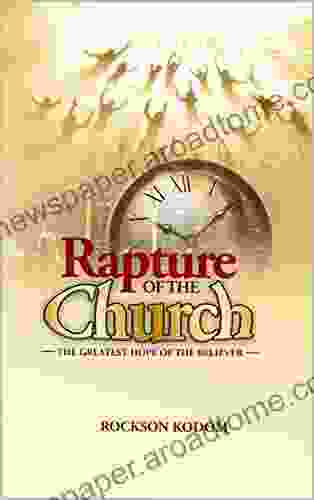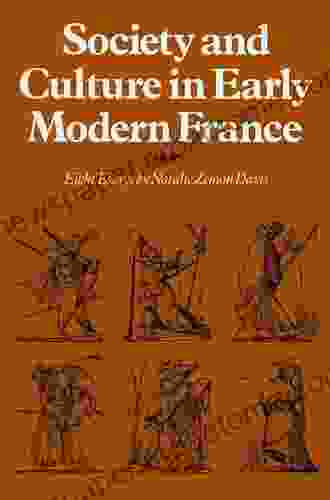Strategic Communications and American Security in World War II: A Harvard Historical Study

Strategic communications is a critical element of national security, and its importance has only grown in the modern era. During World War II, the United States employed a wide range of strategic communications techniques to achieve its security objectives. These techniques included propaganda, public relations, media relations, diplomacy, and intelligence. This book provides a comprehensive analysis of the role of strategic communications in American security during World War II, based on groundbreaking research from the Harvard Historical Studies series.
5 out of 5
| Language | : | English |
| File size | : | 3345 KB |
| Text-to-Speech | : | Enabled |
| Screen Reader | : | Supported |
| Word Wise | : | Enabled |
| Print length | : | 358 pages |
The Importance of Strategic Communications
Strategic communications is the use of communication to achieve strategic objectives. It is a critical element of national security because it can be used to influence public opinion, shape the media narrative, and build support for government policies. Strategic communications can also be used to deter adversaries, demoralize enemy forces, and promote national unity.
The American Experience in World War II
The United States entered World War II in December 1941, after the Japanese attack on Pearl Harbor. The United States faced a daunting challenge: defeating the Axis powers, which included Germany, Japan, and Italy. To achieve this goal, the United States needed to mobilize its economy, build up its military, and secure the support of its allies. Strategic communications played a vital role in all of these efforts.
The Role of Propaganda
Propaganda is a form of communication that is designed to influence public opinion. During World War II, the United States government used propaganda to promote support for the war effort. This propaganda was disseminated through a variety of channels, including radio, film, print media, and public speeches. Propaganda was effective in mobilizing public support for the war, and it also helped to shape the media narrative in favor of the United States.
The Role of Public Relations
Public relations is the management of the public's perception of an organization or individual. During World War II, the United States government used public relations to promote a positive image of the war effort. This public relations campaign was successful in building support for the war and in countering the propaganda of the Axis powers.
The Role of Media Relations
Media relations is the management of the relationship between an organization or individual and the media. During World War II, the United States government used media relations to control the flow of information to the public. This media relations campaign was effective in shaping the media narrative in favor of the United States and in countering the propaganda of the Axis powers.
The Role of Diplomacy
Diplomacy is the art of negotiation and compromise. During World War II, the United States used diplomacy to build alliances with other countries and to secure the support of neutral nations. This diplomacy was successful in isolating the Axis powers and in building a coalition of nations against them.
The Role of Intelligence
Intelligence is the collection, analysis, and dissemination of information about an adversary. During World War II, the United States used intelligence to track the movements of enemy forces and to develop strategies to defeat them. This intelligence was vital to the success of the Allied war effort.
Strategic communications played a vital role in American security during World War II. The United States government used a wide range of strategic communications techniques to achieve its security objectives, including propaganda, public relations, media relations, diplomacy, and intelligence. These techniques were effective in mobilizing public support for the war effort, shaping the media narrative in favor of the United States, and countering the propaganda of the Axis powers. The American experience in World War II provides valuable lessons for policymakers today on the importance of strategic communications in national security.
5 out of 5
| Language | : | English |
| File size | : | 3345 KB |
| Text-to-Speech | : | Enabled |
| Screen Reader | : | Supported |
| Word Wise | : | Enabled |
| Print length | : | 358 pages |
Do you want to contribute by writing guest posts on this blog?
Please contact us and send us a resume of previous articles that you have written.
 Book
Book Novel
Novel Page
Page Chapter
Chapter Text
Text Story
Story Genre
Genre Reader
Reader Library
Library Paperback
Paperback E-book
E-book Magazine
Magazine Newspaper
Newspaper Paragraph
Paragraph Sentence
Sentence Bookmark
Bookmark Shelf
Shelf Glossary
Glossary Bibliography
Bibliography Foreword
Foreword Preface
Preface Synopsis
Synopsis Annotation
Annotation Footnote
Footnote Manuscript
Manuscript Scroll
Scroll Codex
Codex Tome
Tome Bestseller
Bestseller Classics
Classics Library card
Library card Narrative
Narrative Biography
Biography Autobiography
Autobiography Memoir
Memoir Reference
Reference Encyclopedia
Encyclopedia Julia Rogers Hamrick
Julia Rogers Hamrick Robert Balazs
Robert Balazs John Soluri
John Soluri Rupert Fawcett
Rupert Fawcett Juliet Sullivan
Juliet Sullivan Lavelle Peters
Lavelle Peters Kevin Giles
Kevin Giles Marc Cenedella
Marc Cenedella Ryan M Niemiec
Ryan M Niemiec Roxann Delaet
Roxann Delaet Jose Pujol
Jose Pujol Jung H Lee
Jung H Lee Lin Devecchio
Lin Devecchio Ned Mohan
Ned Mohan Vatsala Shukla
Vatsala Shukla John Scarne
John Scarne Julienne B Ryan
Julienne B Ryan Sarah Williams
Sarah Williams Sam Killermann
Sam Killermann June Cotner
June Cotner
Light bulbAdvertise smarter! Our strategic ad space ensures maximum exposure. Reserve your spot today!

 Johnny TurnerNeurishment: The Brain Tune-Up Food Guide to Sharpen Your Mind and Boost Your...
Johnny TurnerNeurishment: The Brain Tune-Up Food Guide to Sharpen Your Mind and Boost Your... Gil TurnerFollow ·12.9k
Gil TurnerFollow ·12.9k George R.R. MartinFollow ·7.1k
George R.R. MartinFollow ·7.1k Denzel HayesFollow ·2.7k
Denzel HayesFollow ·2.7k Nikolai GogolFollow ·15.8k
Nikolai GogolFollow ·15.8k Allan JamesFollow ·17k
Allan JamesFollow ·17k Dalton FosterFollow ·2.4k
Dalton FosterFollow ·2.4k James HayesFollow ·12.3k
James HayesFollow ·12.3k Marcus BellFollow ·8.9k
Marcus BellFollow ·8.9k

 Sidney Cox
Sidney CoxSpiritualism in the American Civil War
An Unseen Force in the...

 Robbie Carter
Robbie CarterEmpowering Healthcare Professionals: Discover the...
Welcome to the world of...

 Virginia Woolf
Virginia WoolfUnveil the Secrets of Nature's Healing Scents: "Growing...
Embark on an aromatic journey...

 Martin Cox
Martin CoxThe Fat Girl's Guide to Loving Your Body: Empowering...
Alt attribute: Confident plus-size woman...

 Graham Blair
Graham BlairUnlock the Secrets of Vegetables: Their Nutritional Power...
In the realm of culinary delights and...

 H.G. Wells
H.G. WellsStep-by-Step Guide to Crafting Astonishing Kumihimo...
Are you ready to embark on a captivating...
5 out of 5
| Language | : | English |
| File size | : | 3345 KB |
| Text-to-Speech | : | Enabled |
| Screen Reader | : | Supported |
| Word Wise | : | Enabled |
| Print length | : | 358 pages |










